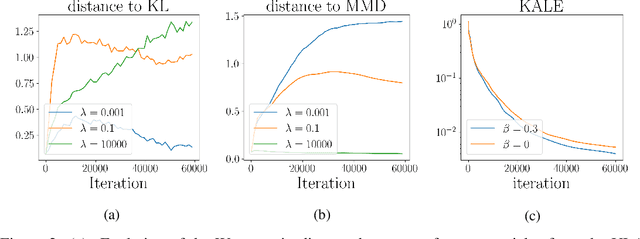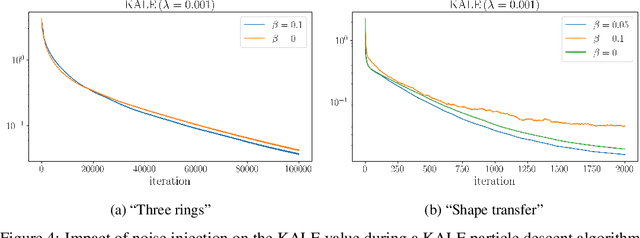KALE Flow: A Relaxed KL Gradient Flow for Probabilities with Disjoint Support
Paper and Code
Jun 16, 2021



We study the gradient flow for a relaxed approximation to the Kullback-Leibler (KL) divergence between a moving source and a fixed target distribution. This approximation, termed the KALE (KL approximate lower-bound estimator), solves a regularized version of the Fenchel dual problem defining the KL over a restricted class of functions. When using a Reproducing Kernel Hilbert Space (RKHS) to define the function class, we show that the KALE continuously interpolates between the KL and the Maximum Mean Discrepancy (MMD). Like the MMD and other Integral Probability Metrics, the KALE remains well defined for mutually singular distributions. Nonetheless, the KALE inherits from the limiting KL a greater sensitivity to mismatch in the support of the distributions, compared with the MMD. These two properties make the KALE gradient flow particularly well suited when the target distribution is supported on a low-dimensional manifold. Under an assumption of sufficient smoothness of the trajectories, we show the global convergence of the KALE flow. We propose a particle implementation of the flow given initial samples from the source and the target distribution, which we use to empirically confirm the KALE's properties.
 Add to Chrome
Add to Chrome Add to Firefox
Add to Firefox Add to Edge
Add to Edge